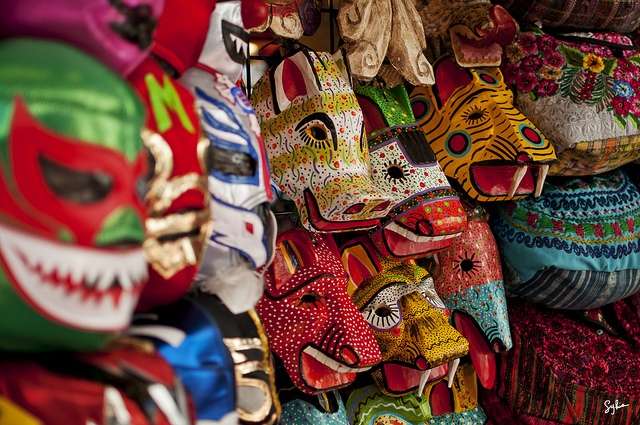In ancient times, and not so long ago in many parts of the world, each tradition was completely distinct and whole. Tradition wasn’t something that a people had; it was the total way of life in which a people were completely immersed.
 Now many people speak of honoring all traditions, but that is nonsense. To a person in whom tradition is still intact, there is only one tradition—his and her own. Only those who have no real tradition speak of honoring traditions.
Now many people speak of honoring all traditions, but that is nonsense. To a person in whom tradition is still intact, there is only one tradition—his and her own. Only those who have no real tradition speak of honoring traditions.
Ask a person in one of the few remaining isolated cultures in South America about their tradition, and they wouldn’t know what you were talking about. That’s because their tradition is all encompassing–a lived, breathed, given reality.
Tradition in the anthropological sense is the totality of a people’s past and present culture. It’s only possible to step outside one’s tradition and examine it in contrast with other traditions when the cohesive weave of the primeval past has been broken.
Has humankind moved beyond traditions? Are coherent traditions a thing of the past? Certainly the idea that we can take traditions from here and there, as if they were a kind of smorgasbord, isn’t working. There are limits to multiculturalism, and we have reached them.
Tradition is organic, whole and beyond personal memory. Each generation inherited and added to their primal tradition, and then passed it down, a tapestry of the past into which succeeding generations were woven. That way of living is gone.
There is no point in lamenting what is past, or denying what is. Humans, to grow into human beings, have to leave tradition behind. Tradition was a thing of our childhood as a species.
Besides, the continuity of thought precludes the flowering of insight. Ancient peoples, and the few intact indigenous groups that remain today, had their own insight, but it was deeply symbolic, embedded in tradition.
In modern terms, the primeval past is somewhat analogous to a mystic in the Middle Ages, couching his or her transcendent insights in the context of Christian theology. To do otherwise was to invite torture and death.
Likewise, it was unthinkable for ancient or indigenous peoples to go outside their traditions in their vision quests. To do otherwise would mean being cast out of the clan.
We can only learn from the remnants of traditions if we see and are related to the larger whole of humanity. Fragments cannot be woven together into a whole. Each tradition was whole, and emerged from the geographic and cultural ground of a given people.
So no gathering of the world’s various traditions can make a whole, because each tradition represented the whole. ‘Diverse traditions’ can only represent fragments.
We moderns have been cut from our roots. Clinging to the fraying strands of tradition that remain, as conservatives do, only serves to further weaken and divide us. We have become unmoored as a species, and must find our anchor in another source, beyond tradition.
The soil of humankind, which is tens and even hundreds of thousands of years old, is eroding fast. The pace and disconnectedness of technological life, the deleterious effects the computer and the Net, and the juggernaut of scientific knowledge are some of the reasons for this radical break with the past.
this radical break with the past.
There are two completely different kinds of learning. There is learning that can be passed on to others, and learning that cannot.
The learning that can be passed on is knowledge and formerly, tradition. The learning that is not accumulative, and cannot be passed on is insight, which is always of the moment. Questioning right observation awakens insight within oneself.
Self-replicating computers will soon exponentially expand humankind’s knowledge. Computers are on the verge of going from housing knowledge to generating knowledge.
From that point on, theoretically even if every human being on earth disappeared in an instant (the misanthropic fantasy of shows like “Life After People”), computers would continue to expand knowledge as long as they had a power source.
The brain is not a computer, though it is dominated by a set of functions called ‘higher thought’ that operates like one. Insight can only grow and flower in a living brain, never a computer.
Human beings no longer need to mediate experience with symbols. Indeed, we can no longer do so without losing our humanity.
The future of humanity does not reside in tradition, or even expanding knowledge. It lies in the full awakening of insight.
Martin LeFevre

